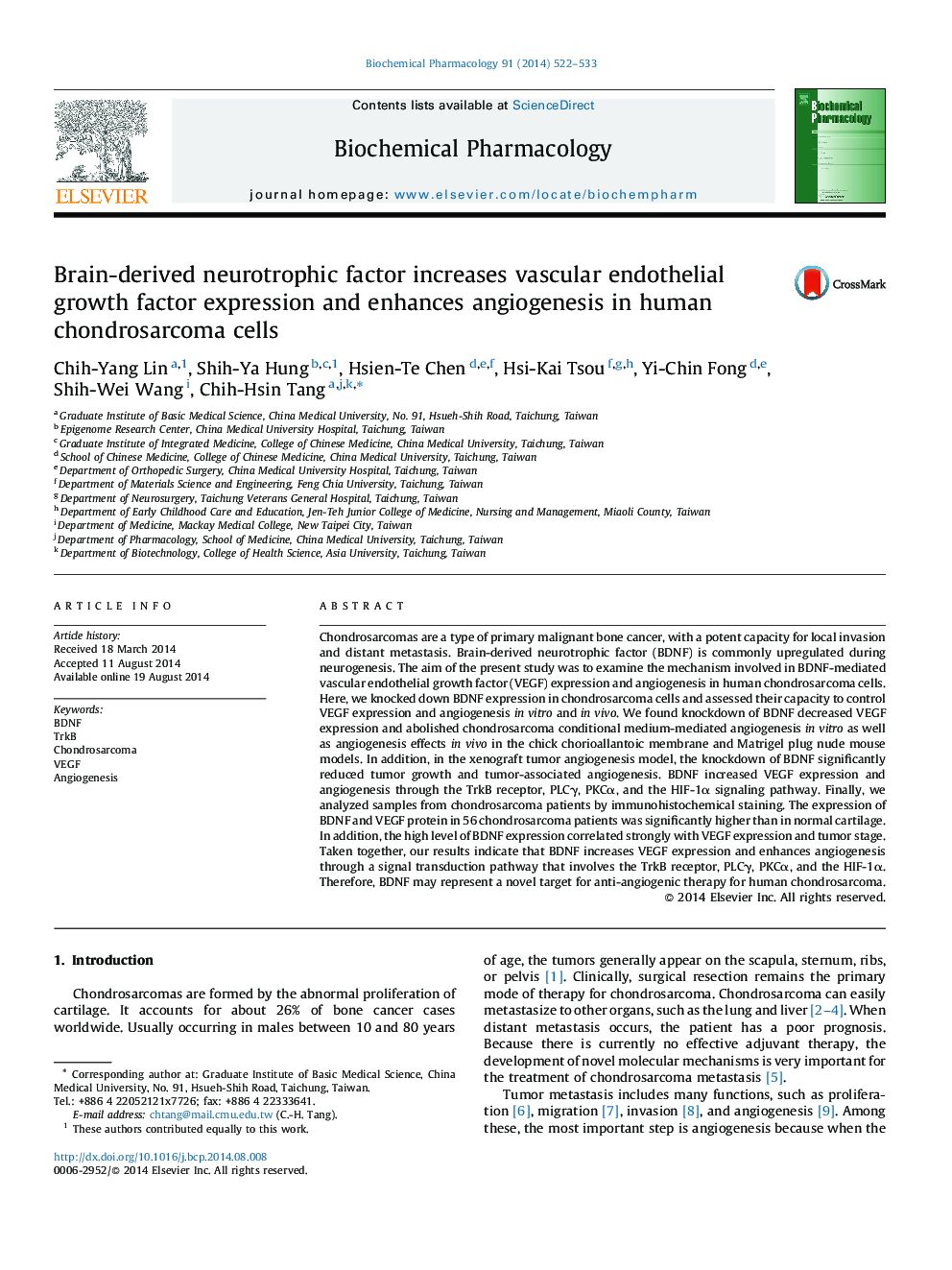| Article ID | Journal | Published Year | Pages | File Type |
|---|---|---|---|---|
| 2512180 | Biochemical Pharmacology | 2014 | 12 Pages |
Chondrosarcomas are a type of primary malignant bone cancer, with a potent capacity for local invasion and distant metastasis. Brain-derived neurotrophic factor (BDNF) is commonly upregulated during neurogenesis. The aim of the present study was to examine the mechanism involved in BDNF-mediated vascular endothelial growth factor (VEGF) expression and angiogenesis in human chondrosarcoma cells. Here, we knocked down BDNF expression in chondrosarcoma cells and assessed their capacity to control VEGF expression and angiogenesis in vitro and in vivo. We found knockdown of BDNF decreased VEGF expression and abolished chondrosarcoma conditional medium-mediated angiogenesis in vitro as well as angiogenesis effects in vivo in the chick chorioallantoic membrane and Matrigel plug nude mouse models. In addition, in the xenograft tumor angiogenesis model, the knockdown of BDNF significantly reduced tumor growth and tumor-associated angiogenesis. BDNF increased VEGF expression and angiogenesis through the TrkB receptor, PLCγ, PKCα, and the HIF-1α signaling pathway. Finally, we analyzed samples from chondrosarcoma patients by immunohistochemical staining. The expression of BDNF and VEGF protein in 56 chondrosarcoma patients was significantly higher than in normal cartilage. In addition, the high level of BDNF expression correlated strongly with VEGF expression and tumor stage. Taken together, our results indicate that BDNF increases VEGF expression and enhances angiogenesis through a signal transduction pathway that involves the TrkB receptor, PLCγ, PKCα, and the HIF-1α. Therefore, BDNF may represent a novel target for anti-angiogenic therapy for human chondrosarcoma.
Graphical abstractFigure optionsDownload full-size imageDownload as PowerPoint slide
